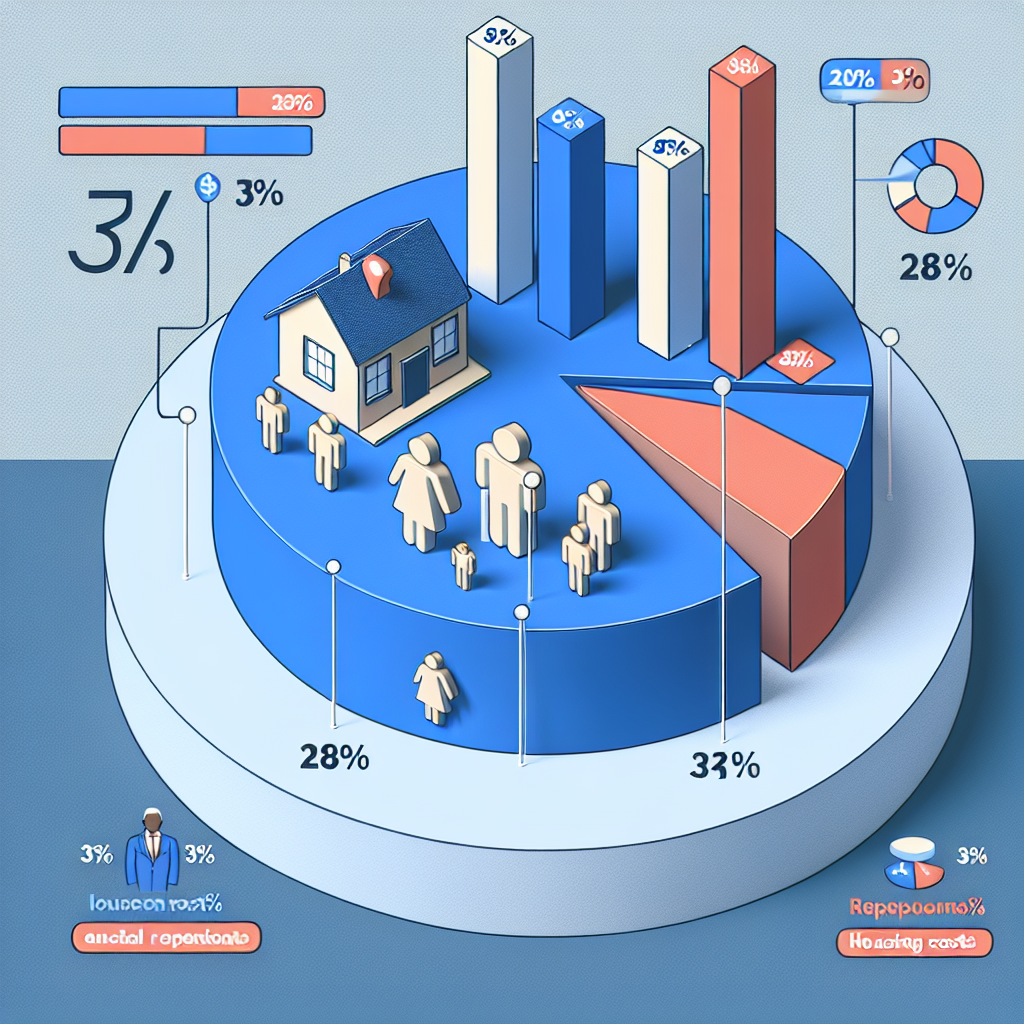Housing Costs Sway 38% of Early Voters in Presidential Choice
As the presidential election approaches, a significant portion of early voters are citing housing costs as a pivotal factor in their decision-making process. According to recent surveys, 38% of early voters have indicated that the rising cost of housing is influencing their choice of candidate. This trend highlights the growing concern over housing affordability and its impact on the political landscape.
The Rising Cost of Housing
Over the past decade, housing costs have surged across the United States, affecting both renters and homeowners. Several factors contribute to this increase, including:
- Limited housing supply in urban areas
- Rising construction costs
- Increased demand due to population growth
- Speculative real estate investments
These factors have led to a situation where many Americans are spending a significant portion of their income on housing, leaving less for other essential expenses. The National Low Income Housing Coalition reports that a full-time worker earning the federal minimum wage cannot afford a two-bedroom rental home at fair market rent in any U.S. state.
Impact on Early Voters
The burden of housing costs is not just an economic issue but a political one as well. Early voters, who often set the tone for the election, are increasingly prioritizing housing policies when choosing a candidate. This shift is evident in several key demographics:
- Young Voters: Millennials and Gen Z, who are entering the housing market, are particularly affected by high costs and are advocating for policies that promote affordable housing.
- Urban Residents: Those living in cities where housing prices have skyrocketed are looking for candidates who propose solutions to the housing crisis.
- Low-Income Families: Families struggling to make ends meet are seeking candidates who will address housing affordability and provide relief.
Case Studies: Housing Policies in Action
Several cities and states have implemented policies aimed at curbing housing costs, providing valuable case studies for national candidates. For example:
- California: The state has introduced rent control measures and increased funding for affordable housing projects.
- New York City: Initiatives like the Housing New York plan aim to create and preserve affordable housing units.
- Minneapolis: The city has eliminated single-family zoning to encourage the development of multi-family housing, increasing supply.
These examples demonstrate that while local governments are taking steps to address housing issues, there is a growing demand for federal action.
The Role of Presidential Candidates
Presidential candidates are responding to the housing crisis by incorporating housing policies into their platforms. Key proposals include:
- Expanding affordable housing programs
- Increasing funding for public housing
- Providing tax incentives for developers to build affordable units
- Implementing nationwide rent control measures
These proposals aim to address the root causes of the housing crisis and provide relief to those most affected.
Conclusion
As housing costs continue to rise, they are becoming a central issue in the presidential election. With 38% of early voters considering housing affordability a key factor in their decision, candidates must prioritize this issue to gain support. By examining successful local policies and proposing comprehensive national solutions, presidential hopefuls can address the concerns of voters and work towards a more equitable housing market. The outcome of this election could significantly impact the future of housing policy in the United States, making it a critical issue for both voters and candidates alike.



